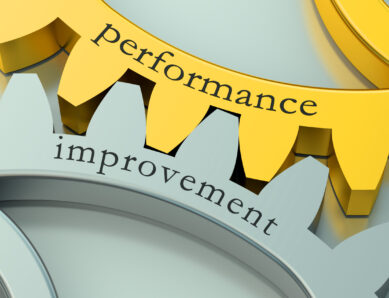Even the most committed people occasionally let their standards drop, if only a little. Maybe it’s just for a very short time, or maybe it didn’t matter too much, just this once.
But this type of thing needs to be kept to a minimum. It should always be the exception and never become the rule. One of the best ways to ensure that you always produce the best quality work possible is by adopting a conscientious approach to your daily tasks.
This will allow you to see clearly what needs to be done, and by when.
Order is absolutely central to conscientiousness, particularly during periods of heavy workloads. Without order, it’s easy to fall prey to distraction and procrastination.
With a sense of order you can pay more attention to the fine details, as the small things will become easier to see and assess, and ultimately deal with.
And here is where a good, old-fashioned To-Do List (still an essential tool if you don’t want to be frequently overloaded with work) comes into its own.
The method you use to achieve this doesn’t have to be anything too fancy, and it doesn’t even need to be digital: a pen and pad will suffice. Just so long as tasks, events and meetings can be recorded and — this is the crucial point — prioritized, and then crossed off when completed, preferably (in my case) with a satisfying swish of a ballpoint pen.
Even with the gadgets that surround me, I always try to find time to make a list, noting down the tasks ahead of me, adjusting priorities, and even making a sub-list of things that need to be completed a few months down the line but which can be started sooner.
Yeah, I know what you’re thinking: this guy just uses up large portions of every day telling himself what he’s going to do, rather than just getting on and doing it.
Well, it’s certainly true that writing a list can take more than just a few minutes, and does require care and attention.
But surely it’s better to start Monday morning, as I do, with a list of tasks to complete, quickly work out what needs to be looked at over the next few days or what can be shunted into next week, than deal with events on an ad hoc basis, within a very loose structure.
With so much noise and distraction in our daily lives, there’s a lot to be said for slowing down and taking a moment to plan and reflect. Spending five minutes at the end of each day thinking about your upcoming tasks can give you a valuable head start the following morning.
This process also allows you to assess which tasks shouldn’t even be on the list at all. Again, it all helps to bring order and clarity to your working day, and let’s not forget that having a well-functioning and adaptable To-Do List is also a good way to demonstrate conscientiousness.
All this doesn’t mean that you need to make an either/or choice about how you work, embracing the chaos of a list-free netherworld or robotically following Orwellian instructions. It just means using ordered decision making to help the day flow a little better.
What are your top tips for staying conscientious at work? Let us know your thoughts in the comments section below. Check out our latest article, How to Be Conscientious, for more information on this topic.




Comments
Rebel says
8 years agoI was never a natural "to do list"-maker - until I learned how much value it has. It's the one thing that really helps me keep on track and do what I need to do when I need to do it.
Conscientiousness was also something that my parents drilled into us - although as a teenager (check the moniker) I thought it was a load of hogwash. Later in life I realised that it's one of the most important values they taught me.